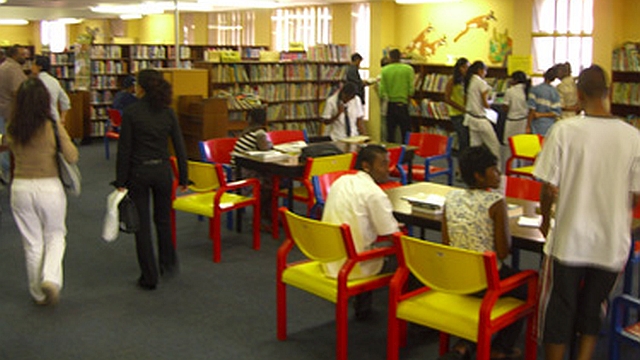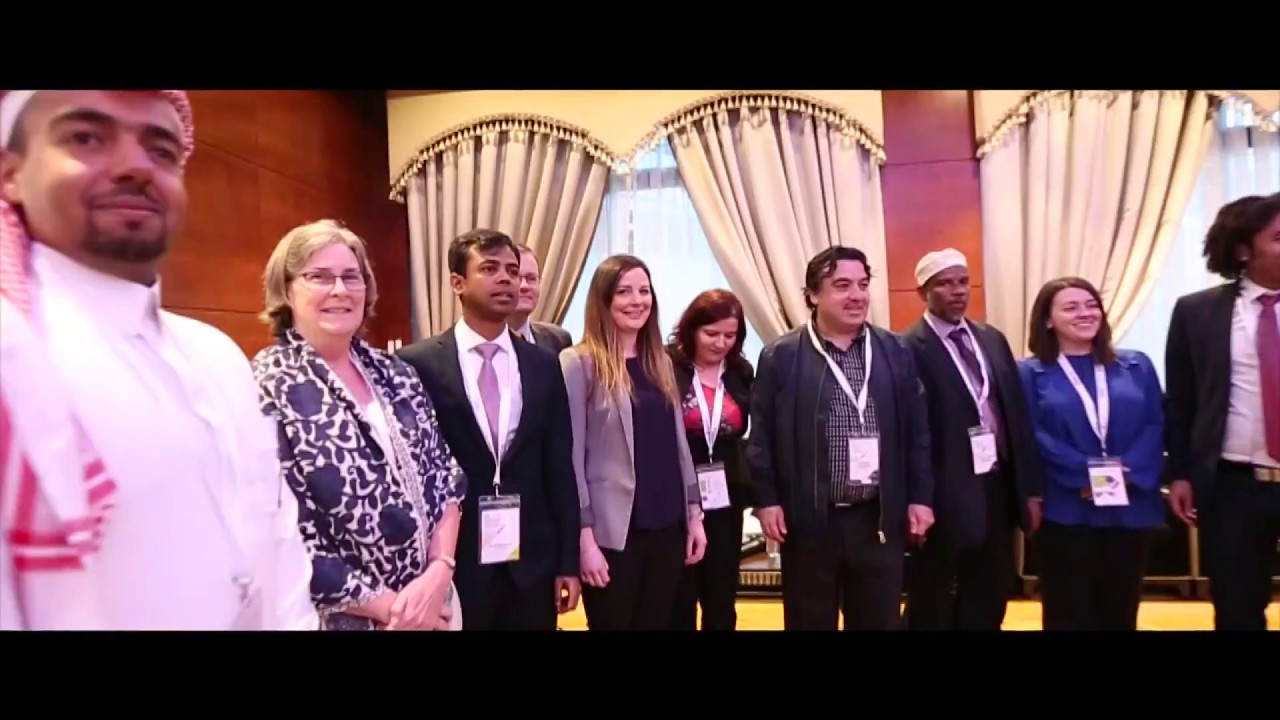
Understanding issues, prospects, and opportunities in knowledge management and library and information science (LIS)
Introduction
There has been ongoing debate on the origin and ownership of the concept of knowledge management (KM) among scholars around the globe. Library and information science (LIS) is generally seen as a branch of academic discipline that deal with the organization, access, collection, protection and dissemination of information to users in physical or electronic forms. While knowledge management (KM) is the process of creating, sharing, using and managing information and knowledge of and organization. The claim to have the ownership of KM and relationship between LIS and KM is what called the need for this unique conference. The conference was organised and hosted by Africa KM Community and Global Knowledge Partnerships Network on 12th May, 2021.
Objectives of the Knowledge Café
The objectives of the webinar were met and members agreed to apply the points raised and continue with the discussion in the consequent knowledge café. Members agreed to raise the banner of LIS and KM high in order to mentor and encourage many young members to join the field and organizations to incorporate the two so as to boost performance and ensure sustainability of their functions and objectives.
Background
Africa KM Community draws its membership from knowledge managers across the African continent with the aim of harnessing, organizing, sharing and applying African knowledge with a focus of solving African problems. Under the leadership of Gladys Kemboi, Maureen Kenga, Adaora Obuezie and Adamu Abdullahi, the community organized and held its first knowledge café on “Prospects and Opportunities in Library Information Science and Knowledge Management”. The knowledge café facilitators came from across the globe involving Loida Garcia-Febo (IFLA), Toni Sittoni (Kenya) and Prof. Ifeka Okeke (Nigeria). Participants were drawn across the globe including Botswana, Kenya, Nigeria, Zimbabwe, South Sudan, South Africa, Sweden, Caribbean and USA.
Discussion
Knowledge is a crucial resource that gets created, shared and used throughout an organization. The topic of discussion was triggered with the fact that some members in the community felt like knowledge management is being colonized by library science and hence needs to be decolonized. This hot debate raised issues that affect the information science and knowledge management profession. There were three (3) key speakers who talked on the subject matter during the knowledge café, they are Loida Garcia-Febo, Toni Sittoni and Professor Ifeka Okeke.
Firstly, Loida stressed out that LIS should be linked to actionable ways and especially with SDGs as done with International Federation of Library Associations (IFLA). IFLA applies KM for SDGs especially knowledge capture for development, knowledge sharing for dissemination and ensuring knowledge sustainability. Secondly, Toni explained that we cannot separate LIS with KM since they complement each other and ensure collaborative platforms knowledge curation, knowledge customization, knowledge sharing and use. He further emphasized the positioning of KM should be clear from the highest level of the organization – at strategic level. Lastly, Professor Ifeka, opined that with information, one can create knowledge hence without information knowledge will not be in existence thus you cannot separate KM from LIS. Prof Ifeka pointed out that LIS professionals should embrace change and incorporate KM fully, publicise KM concept seriously and improve on their information roles. He added that LIS and KM curriculum should be incorporated in all courses.
Emerging Issues
The emergences of knowledge management (KM) demand the acquisition of specialized competences on the part of LIS professionals. Ray Eisenberg of World Bank raised a concern that Libraries often are seen as middle-class institutions, he asked ‘‘What kind of efforts are you seeing to reach out to under-served communities?’. More participants seconded Ray’s concern that in Kenya, libraries are being viewed as a space for shelving books and librarians are not valued thus this poses a threat to young professionals and future generations. Professor Senaji responded that in Kenyan universities, the higher education regulator specifically requires that a common course is taught to all university students to appreciate the place of library and related science. However, Professor Ifeka further admitted that what stands now is Knowledge (information) sharing is power which is the great height of knowledge economy. He further raised some emerging issues which include:
- Resistance to change. LIS professionals are most time find it difficult to embrace new ideas. Knowledge management practices are yet to be embraced by LIS practitioners due to fear of the unknown.
- Unwillingness of LIS professionals to share knowledge. This seriously affects knowledge management. We know that one’s knowledge gives him an advantage over others, hence finds it difficult to transfer such knowledge. This completely defeats the aim of knowledge management.
- Many LIS professionals are yet to understand what knowledge management is all about. Some are not even aware of its existence. Even the LIS educators are facing same problem.
- Technology helps KM to grow when being properly applied. The issue of the cost of the machineries and re-training of LIS practitioners becomes a big challenge.
Another emerging issue is that library is deemed as a space for shelving books only and librarians are not valued. Many young professionals have lost hope. How do we correct this wrong impressions, especially for young aspiring professionals? The respondents agreed that we need to be advocate, we need to jealously defend our profession and speak authoritatively whenever we are.
Prospects and Opportunities
Professor Ifeka acknowledged that knowledge management (KM) and library and information science have a lot of prospects and opportunities which are inherent and works together. KM helps to develop the strength of an organization including the library by bringing together skills, expertise, experiences of all the staff members and channels it towards achieving the goals of the organization.
While, Loida shared about IFLA membership that it is open to all members. She applauded Africa KM Community that it is a nice and well-structured community and members can reach out to IFLA chair on how best to participate in KM activities. Loida emphasized the significance of collaboration and partnerships with other sectors and using various platforms such as local newspapers, local radios and social media platforms to inform the world what we do as librarians and knowledge managers in addressing SGDs.
According to Toni, there is an increasing appreciation of KM and growing indicators in Kenya based on increasing job adverts, but understanding of KM varies in organisations some look at it from IT perspective, or based on knowledge on content creation where now librarians come in. KM needs to be secured in senior leadership and reflected in organisational mission and vision, policies and strategic plans and this way KM. Jeremiah from Ministry of Devolution in Kenya acknowledged Toni’s contribution that we can develop a synergy and value chain of knowledge in KM from other professionals.
Ray shared about Communities of Practice and Community Management Certification program at World Bank, for more information, contact Ray directly or Gladys. Ray gave the best advice for knowledge management is to join Communities of Practice, knowledge management is much broader concept than library science just as CoPs which is part of KM. In knowledge management, there is a lot of activities like facilitating meetings, extraction of tacit and passing of knowledge, and finally knowledge exchange between countries which in many ways LIS doesn’t have. There is a lot library science can benefit from KM.
Conclusion and Recommendations
Even though many disciplines are claiming that KM is their baby, there is no doubt that library and information science remains its major stakeholder. The objectives of the webinar were met and members agreed to apply the points raised and continue with the discussion in the consequent knowledge cafés. Members agreed to raise the banner of LIS and KM high in order to mentor and encourage many young members to join the field and organizations to incorporate the two so as to boost performance and ensure sustainability of their functions and objectives. It was revealed from the knowledge café that there is a significant relationship between LIS and KM in terms of management of information and knowledge. Thus, KM is part and parcel of LIS. Therefore, librarians are knowledge managers. It was also recommended that every Librarians should accept to be called and we need more short mentorship programs in knowledge management to support LIS.
Based on the foregoing debate, the following were recommended for further action:
- More conferences and knowledge cafés on the current trends in KM should be hosted.
- Librarians should be aware that they are knowledge managers by virtue of their training and profession.
- Librarians should be more IT oriented so that they can manage knowledge more effectively in their organisations.
Header image: Public Library, Durban, South Africa. Ivan Chew on Flickr, CC BY-NC-SA 2.0.






